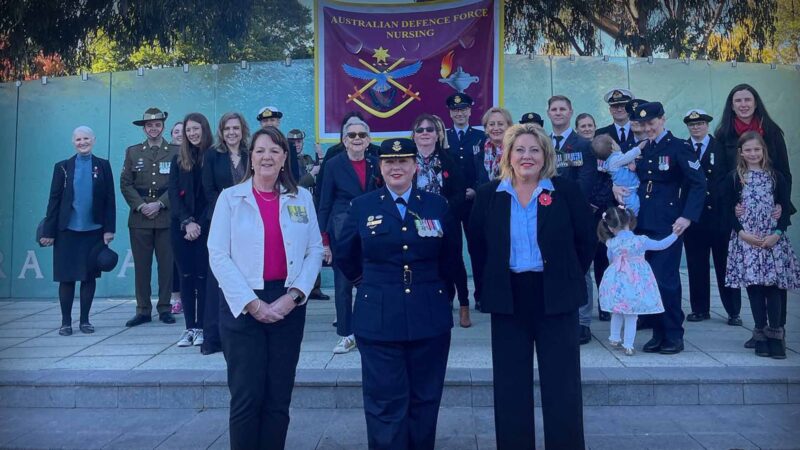Kylie Ward, CEO Australian College of Nursing spoke with Anne Dao from Australian Health Journal, at last week’s Australian Healthcare Week Expo on the vital role of the nursing professional.
Australian College of Nursing oversees 390,000 nurses in Australia and is the national leader in the nursing profession.
Changes in nursing policy are needed in areas of aged care, chronic disease and workforce sustainability. There are forecasts of shortages in nursing by the year 2025 of 80,000 and by 2030 the number growing by 125,000.
Kylie also mentioned the new Nursing Trailbrazers Award that has been recognised by Federal Health Minister, Greg Hunt. The 4 finalists have been recognised for influencing models of care, and implementing game changing initiatives across the country. They will be presented at the Nursing Now Australia event held by the ACN on 9th April.
You Might also like
-
Sense of service and pride in uniform
This ANZAC Day 2023, Australian Health Journal releases an interview with Group Captain Kath Stein MACN, Director of Defence Force Nursing with the Royal Australian Air Force.
She talks about many masks, aside from PPE, that leadership and all nurses need to wear. Currently there is work underway on a new capability description on what a nurse brings to every level in the nursing defence structure. The advice Group Captain Stein, imparts for new recruits and those interested in joining Defence Force Nursing is to take every opportunity that arises. This is evident in her progression through her career.
-
Improved treatment in advanced-stage Hodgkin lymphoma
A global clinical trial successfully reduced toxicity and side effects in advanced stage Hodgkin lymphoma patients by using a modified treatment regimen.
Australian Health Journal spoke with Professor Mark Hertzberg in his role in the ALLG HD10 Clinical Trial and as a former Chair of the Scientific Advisory Committee of the Australasian Leukaemia & Lymphoma Group (ALLG), an organisation involved in improving the treatments and lives of blood cancer patients.
-
Australian Healthcare Week 2019: Pitch Fest Finalist Coviu
Telelheath startup company Coviu was a Pitch Fest Finalist at last week’s Australian Healthcare Week Expo in Sydney. The Coviu platform has been developed as an spinoff from CSIRO and allows healthcare businesses offer video consultations to their own patients. It differs from being just a ‘talking head’ platform that Skype or Zoom could offer, by providing clinical tools integrated within the app. Anne Dao spoke with Co-founder and CEO Silvia Pfeiffer about the company and platform’s journey to date and its longer term goals.
Coviu helps healtcare businesses by helping fit in more consultation during that day and reducing no-shows for appointments. Also given the nature of the dispersed population, the application reaches to rural and regional areas where patients are a long distance from their healthcare provider. The company is focused on the Australian market and aims to enter the US market next year
Post Views:
2,721



